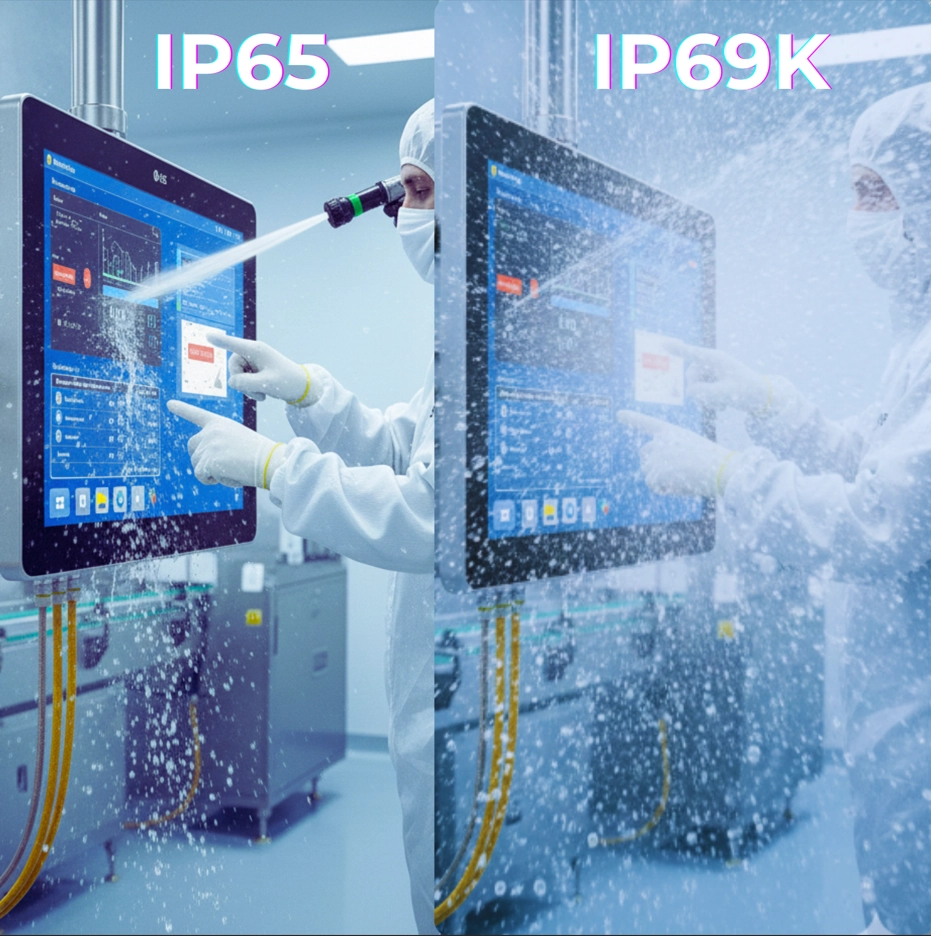Why Military Grade PCs Are Vital for Defense and Military Applications
The Role of Rugged Industrial PCs in Harsh Military Environments
Military environments are known for extreme operating conditions, including wide temperature ranges, exposure to dust, shock, vibration, and electromagnetic interference, which require military-grade computing solutions. Military grade PCs are engineered with rugged enclosures, passive cooling systems, and reinforced components to ensure reliability in these hostile settings.
Such systems typically comply with MIL-STD-810H for environmental durability and MIL-STD-461 for electromagnetic compatibility. These certifications validate their resilience against factors like temperature fluctuations, humidity, and shock impact — critical for air, land, and naval defense deployments.
Table: Comparison of Military vs. Commercial Grade PCs
| Feature | Commercial PC | Military Grade PC |
|---|---|---|
| Temperature Range | 0°C ~ 40°C | -40°C ~ 70°C |
| Vibration/Shock | Minimal | MIL-STD-810H Compliant military-grade laptops are designed to withstand extreme environments. |
| EMI/EMC | Consumer Level | MIL-STD-461 Compliant systems are crucial for military-grade computing to minimize electromagnetic interference. |
| Mounting Options | Desktop | Rackmount / Panel / VESA |
| Lifecycle | Short (2-3 years) | Long-Term (7-10+ years) |
Learn more about our rugged solutions:
🔗 Military Grade Panel PC
Key Compliance Standards and Certifications for Military Industrial PCs
Understanding MIL-STD-810H, MIL-STD-461, and Beyond
Compliance is non-negotiable in defense procurement. Military grade PCs must adhere to a range of standards to ensure operational security and system integrity. Among the most recognized are:
- MIL-STD-810H: Environmental testing for durability in harsh conditions
- MIL-STD-461: Electromagnetic interference and compatibility standards
- IP65/67 ratings are essential for military-grade computers to ensure protection against dust and water.: Protection against water and dust ingress
- DO-160 certification is important for military-grade computers operating in aviation environments.: Aerospace-specific environmental standards
Failure to comply could result in mission failure or compromised security. Engineers must consider compliance early in the design and procurement process to ensure longevity and interoperability across systems.
Discover our defense solutions:
🔗 Military Grade Rugged Devices
Top Application Scenarios for Military Grade Industrial PCs
How Military PCs Support Modern Defense Technologies
Modern military operations demand high-performance, rugged computing in various applications, including:
- Unmanned Aerial Vehicles (UAVs) often utilize military-grade computing for enhanced performance and reliability.
- Ground Control Stations (GCS)
- Tactical Communications
- Command and Control Centers (C2)
- Naval Systems and Submarines
- Radar and Surveillance
- Military Logistics
Military grade PCs Military-grade computing devices deliver real-time data processing, AI-driven analytics, and seamless system integration through robust connectors like Ethernet, serial, and USB ports. They often feature Intel® Core i5/i7 processors, 4-64GB RAM, SSD storage, and secure TPM modules.
Table: Military Application vs. Recommended IPC Configuration
| Application | Recommended Hardware | Key Features of military-grade computers include durability and reliability in harsh conditions. |
|---|---|---|
| UAV Control | Panel PC / Fanless IPC | Compact, Shockproof, Fanless |
| Ground Stations | Rackmount PC | High-Performance, Expandable military-grade servers are designed for demanding applications. |
| Command Centers | Panel PC / Box PC | Touchscreen, Ethernet, Redundant |
| Naval / Marine | Waterproof Panel PC | IP67, Salt-Resistant Enclosure |
| Tactical Vehicles require military rugged computers to operate effectively in extreme conditions. | Rugged Embedded IPC | Shockproof, Wide Temperature |
Why Fanless and Rugged Designs are Mandatory for Military Computing
How Design Impacts Performance, Lifecycle, and Reliability
In military environments, passive cooling (fanless) systems are critical to reducing points of failure and improving long-term reliability. A Military grade PCs are essential for operations in challenging conditions, ensuring reliable performance. with a fanless design minimizes maintenance needs and extends operational lifecycles in dusty, vibration-heavy, or extreme temperature zones.
Key design considerations for military-grade systems include durability, compliance, and reliability.
- Enclosures rated IP65 or higher
- Mounting options: rackmount, panel mount, VESA
- Wide voltage input (DC power), redundant power supplies
- Secure interfaces: USB 3.0, Ethernet, serial
Selecting the Right Military Grade PC for Your Project
What Engineers Should Prioritize in Military Deployments
Choosing the right system goes beyond specs. Engineers must evaluate:
- Processor Requirements: Intel® Core, Xeon for AI workloads
- Memory & Storage: 4GB-64GB RAM, SSD resilience
- Compliance Certifications: MIL-STD, IP ratings
- Operating Environment: Wide temperature, EMI, and vibration resistance are critical features of military-grade computing devices.
- Expansion Needs: PCIe, additional ports, GPU capability
Failure to align these considerations with military-grade project objectives can lead to costly failures or integration challenges.
Explore how BIS delivers scalable solutions:
🔗 About BIS
Trends Shaping the Future of Military Grade Industrial Computing
From AI Integration to Cybersecurity Considerations
The defense sector increasingly integrates AI, machine learning, and real-time analytics at the edge. Military grade PCs now serve as platforms for:
- AI inference on the battlefield
- Real-time situational awareness through data fusion
- Cybersecurity-hardened systems for secure communications
- Integration with UAVs, autonomous systems, and smart weapons
These trends demand IPCs that are not only rugged but highly configurable, future-proof, and secure by design.
Conclusion: The Critical Role of Military Grade PCs in Modern Defense
Military grade PCs are more than rugged computers; they are mission-critical assets that ensure operational success, security, and technological advancement in modern defense environments. From compliance with strict military standards to innovative AI integrations, these systems continue to evolve in response to the ever-changing demands of defense technology.
As the defense sector advances, trusted providers like BIS deliver customized, compliant, and future-proof solutions designed to meet these evolving needs.


